As we learned earlier in the trip, the concept of Ubuntu means “I am because of you. You are because of me.”
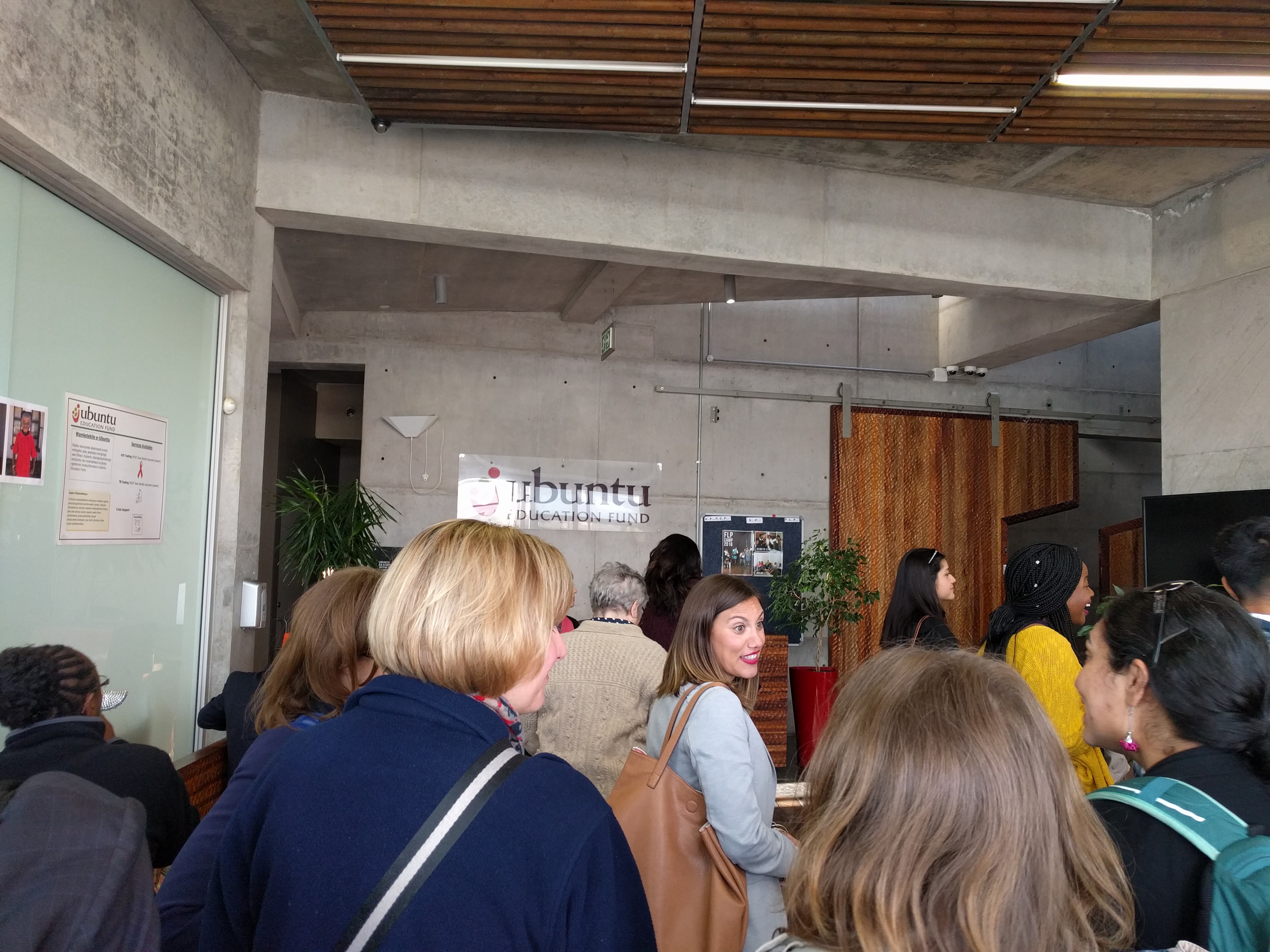
The Ubuntu Education Fund is changing the lives of young people through education, food security, and public health resources. The Fund seeks to transform children’s lives by engaging with (and requiring commitment by) the entire household, thus electing to make a deep rather than broad impact in the Port Elizabeth community.
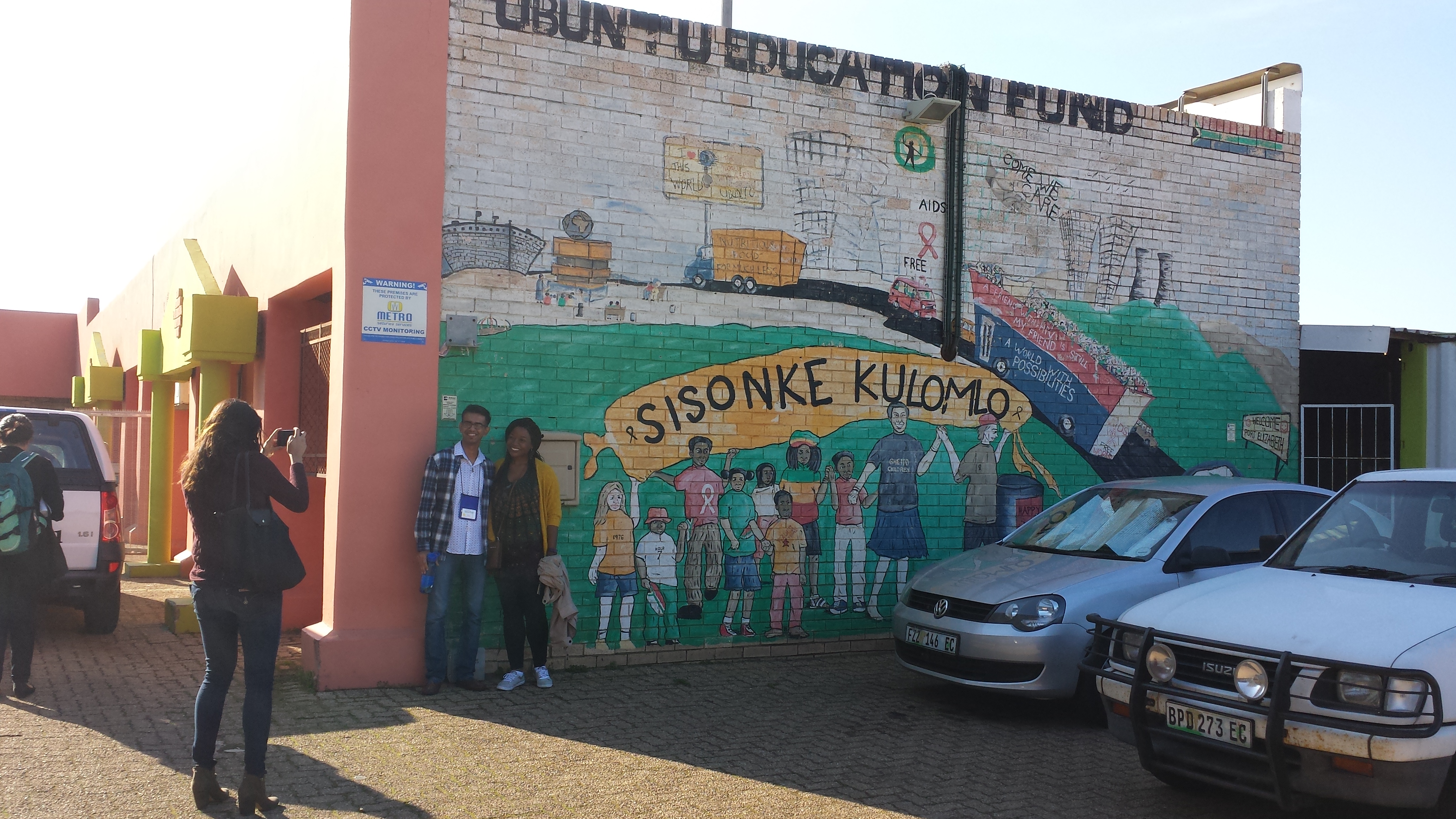
The intent for visits to organizations such as the Ubuntu Education Fund, the Kliptown Youth Program, and to spaces such as Soweto is to deepen understanding of the backgrounds of and circumstances faced by students who enter higher education.
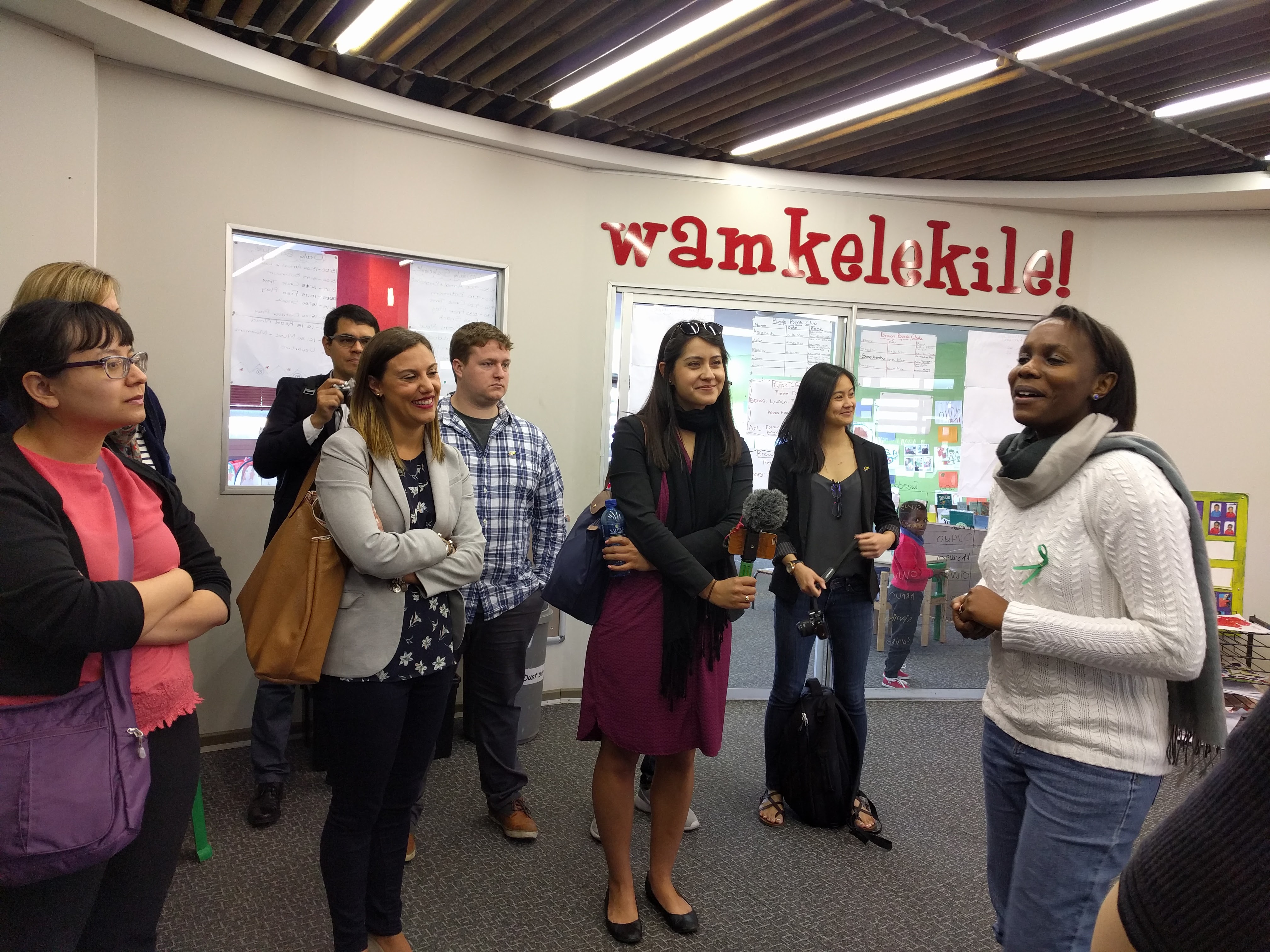
Prior to our departure, the group met together three times to read about and discuss the South African context. Getting our “boots on the ground” may have sometimes felt uncomfortable, but through these first-hand experiences–seeing, feeling, sharing–we grow and stretch ourselves. Hopefully becoming better people and more compassionate and proficient higher education professionals in the process.
Ubuntu Education Fund
At first sight, the Ubuntu Centre seems like it was dropped out of the sky. A massive structure made of concrete and wooden beams that you would expect anywhere in the world but Zwide, a township of Port Elizabeth. Inside this apparent symbol of modernity are the multi-layered programs run by the Ubuntu Education Fund (“the Fund”). The fund serves about children of the township through a comprehensive approach that targets every aspect of their lives along the “cradle-to-career” pathway. While most development organizations seek to serve as many children as they can, the Fund purposely chooses to only serve about 200 children albeit through a much deeper approach. Knowing that educational opportunities alone may not be enough to transition some of South Africa’s most vulnerable children toward stability, the Fund focuses on the entire family’s health and household stability alongside the child’s education. They provide such services as household support, parenting workshops, camps and afterschool clubs, routine health assessments, prenatal care, HIV/AIDS testing, family planning, career guidance, university scholarships, and more. By making such a comprehensive investment in a child’s education, the Fund is redefining what it means when a program goes to scale.
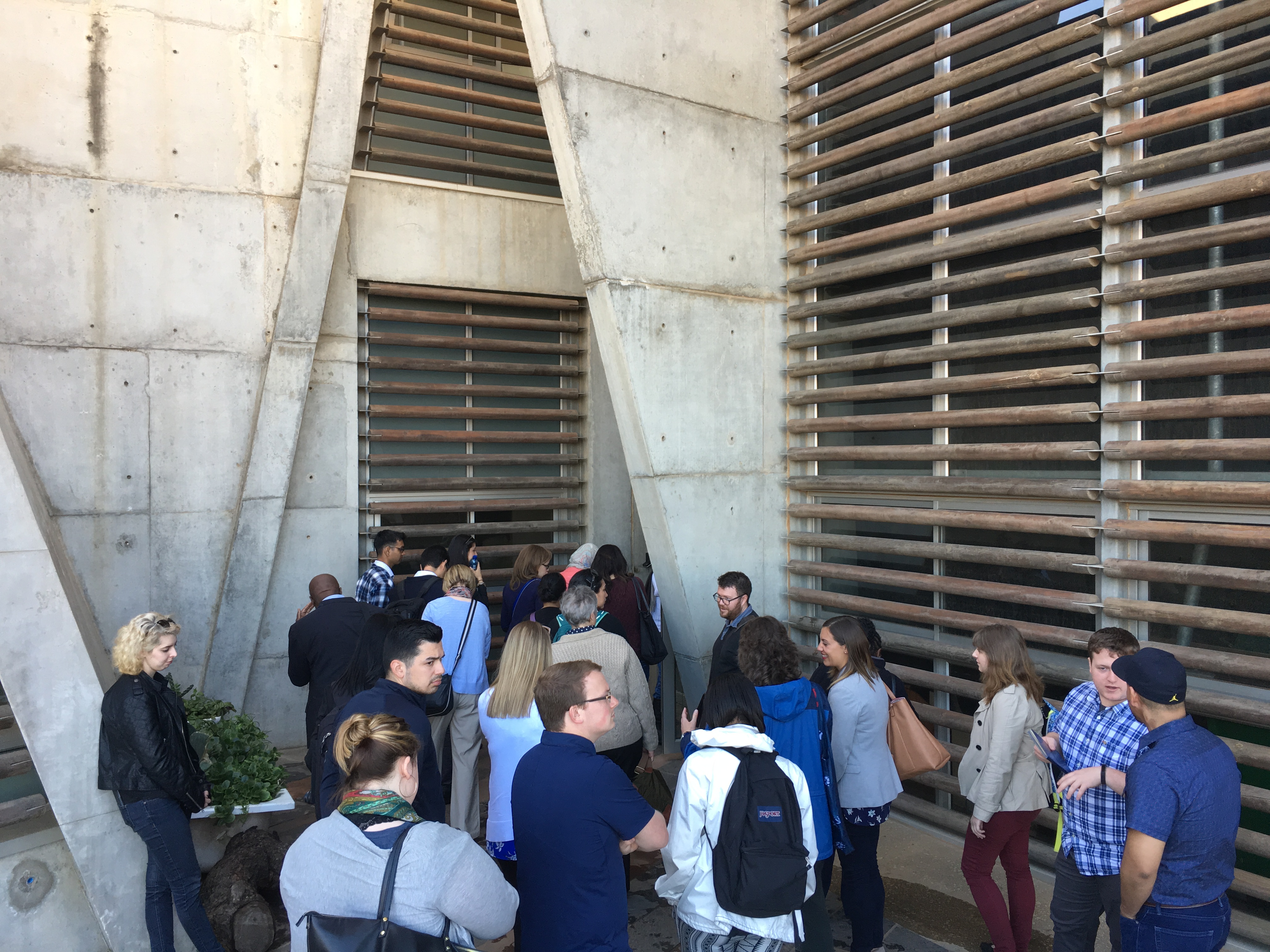
As we were ushered from the main gathering space in the building through the clinic and early childhood wings, I couldn’t help but wonder what the outcomes the Fund’s wraparound approach produced. A quick search on the Fund’s website generated a 2011 evaluation report by McKinsey & Company claiming that a $1 investment in an Ubuntu child results in $8.70 increased lifetime earnings and $2.20 net gain to society. Fund clients also adhere to HIV drug regimens at a higher rate than Port Elizabeth residents, and 72 percent of Ubuntu children pass their grade 12 exam compared to 37 percent of non-Ubuntu community school children. While these figures are certainly impressive, I felt the true success of the Fund through our interactions with our host for the day, Marketing Director Nozibele Qamngana. As a client of the Fund herself, she knows firsthand the true impact of the organization on the life trajectories of children in the township and did not hesitate to credit the Fund for the person she is today.
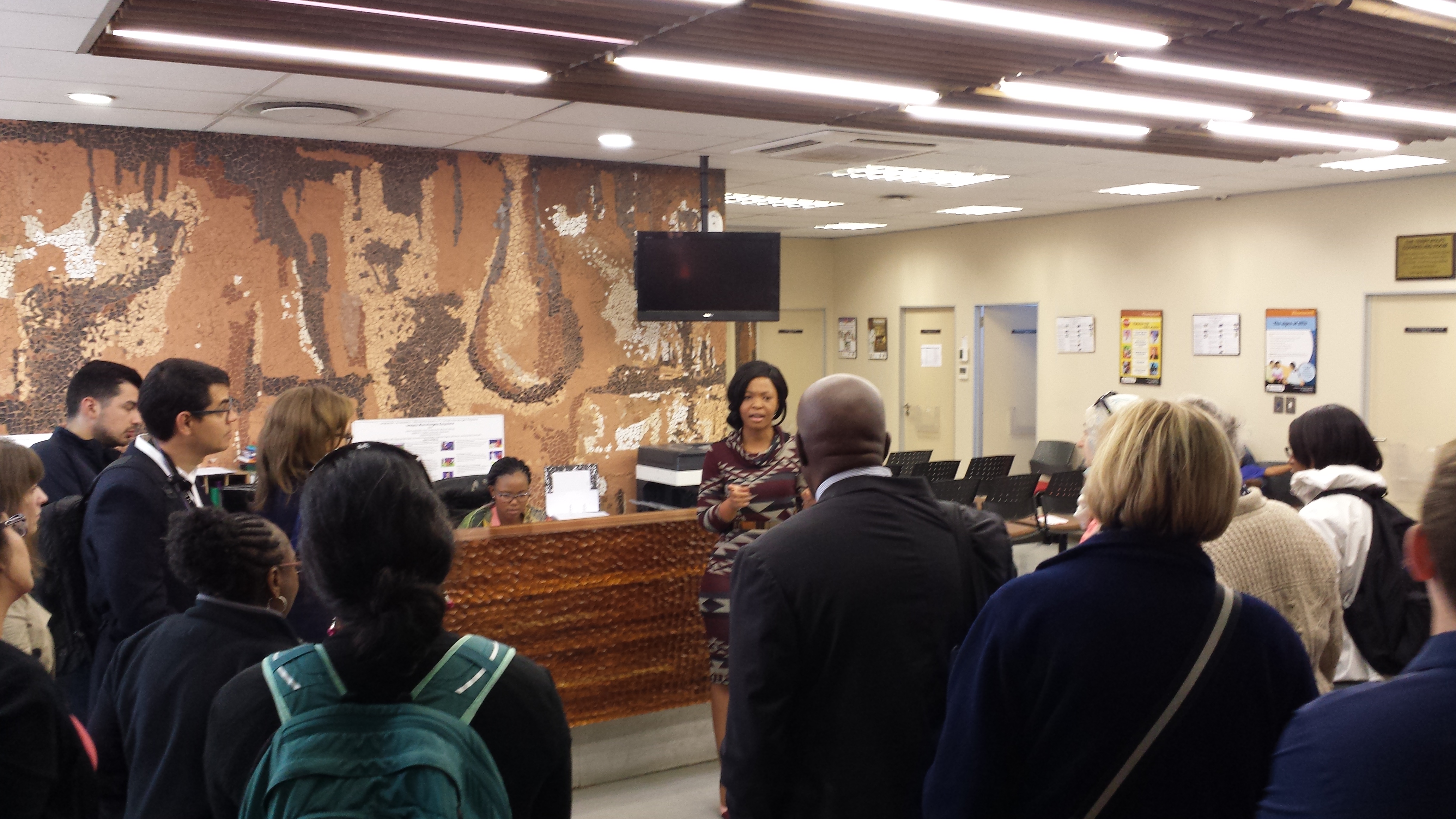
Nozebele’s own story is a testament to the power of local management and leadership. By simultaneously serving the needs expressed by township residents and cultivating its clients and volunteers into organizational leaders, the Fund really does act as a partner with the community it first set out to serve in 1999 and ensures its efforts are sustainable for years to come. In that moment, I recognized how the Ubuntu Centre’s architecture, as foreign as it may have appeared in Zwide at first glance, is the physical manifestation of the aspirations of the township and of the Fund’s promise to continue to serve future generations for years to come. This kind of vision is what ultimately crystalized the spirit of Ubuntu for me – I am because you are – or in the words of Desmond Tutu, “My humanity is caught up, is inextricably bound up, in yours.” Ubuntu, though not easily translatable to Western language, is readily relatable to our work in higher education. If the work of the Fund is any indication, I believe it is our ability to tap into our humanity that will lead us to become better scholars, practitioners, or a blend of both.
–Christian Martell, doctoral student

